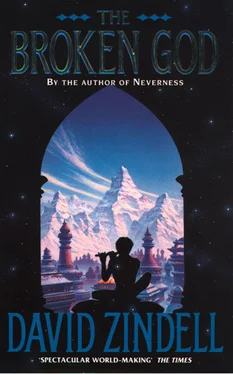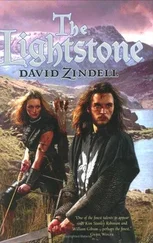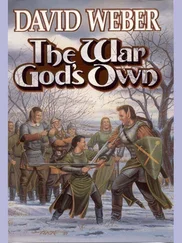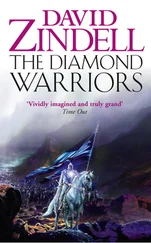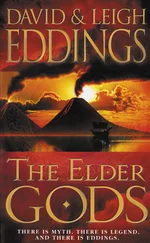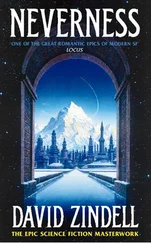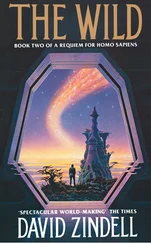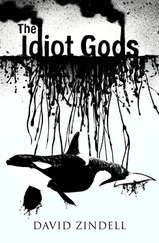One day, during deep winter, the men and women sickened all at once with a mysterious, frothing fever. It was a fever that stole away sense and lucidity, leaving its hosts paralysed and leaking fluids from the ears. Of all the tribe, only Danlo and one strange man named Three-Fingered Soli remained untouched. It fell to them to hunt and prepare the food, to melt snow for drinking water, to keep the oilstones burning so there might be a little light to warm the sick inside their snow huts. Danlo and Three-Fingered Soli loved their near-brothers and sisters as they loved life, and for six days they worked like madmen to perform the hundreds of little daily devotions necessary to keep their tribe from going over too soon. But since there were eighty-eight Devaki and only two of them, it was an impossible task. Slowly – for the Alaloi are a tenacious, stubborn people – slowly Danlo’s tribe began to die. His near-sister, Cilehe, was one of the first to make the journey to the other side of day. And then his near-fathers Wemilo and Choclo died, and Old Liluye and many others. Soon the cave was full of rotting bodies waiting to be buried. Danlo tried to ignore them, even though, for the Devaki, the care of the dead is nearly as important as that of the living. He lavished his energies on his found-father, Haidar, and on Chandra, the only woman he had ever known as a mother. He made blood-tea and dribbled the thick, lukewarm liquid down their throats; he rubbed hot seal oil on their foreheads; he prayed for their spirits; he did everything he could to keep them from going over. But to no avail. At last, the slow evil stole them from life. Danlo prayed and wept, and he left their hut intending to go outside the cave to find some fireflowers to put on their grave. But he was so exhausted that he tripped into a snowdrift and fell at once into a deep, dreamless sleep. Later that day, Three-Fingered Soli found him there, covered with layers of fresh new snow.
‘Danlo,’ Soli said as he brushed the sparkling soreesh from the boy’s furs, ‘ wo lania-ti ? Are you all right?’
‘I was just sleeping, sir,’ Danlo said. ‘ Mi talu los wamorashu. I was so tired.’ He rubbed his eyes with his powdered mittens. Even sitting in the snow, he was tall for a boy thirteen years old; he was taller, leaner and more angular than any of his near-brothers. In truth, he did not look like an Alaloi at all. He had the long nose and bold face bones of his father. His eyes were his mother’s eyes, dark blue like liquefied jewels, and even though he was very tired, they were full of light. In almost any city of the Civilized Worlds, his fellow human beings would have found him fiercely handsome. But he had never seen a true human being, and he thought of himself as being different from his near-brothers. Not exactly ugly, but rather strange and delicately deformed, as if he were a thallow born into a nest of sparrowhawks.
‘You should not sleep in the snow,’ Soli said as he brushed back his grey and black hair. Like most Alaloi men, he was large and muscular. Today, he was very tired. His shoulders were slumped, and there was a faraway, broody look about his eyes. He seemed very worried. ‘Only dogs sleep in the snow.’
‘But, sir, I was only going to pick fireflowers,’ Danlo said. ‘I do not know what happened.’
‘You might have slept too long and never awakened.’
Soli pulled him to his feet. They were standing near the mouth of the cave. Thirty feet away, the sled dogs of twelve families were tied to their stakes in the snow; they were pulling at their leashes, whining, begging for their evening meal. Danlo couldn’t remember the last time he had fed them. He couldn’t remember the last time he had fed himself. It was late afternoon and the sun was low in the sky. The air was blue cold, as clear as silka , the new ice. He looked out over the valley below the cave. The forest was already lost in shadows of dark green and grey – tomorrow, he thought, he might hunt shagshay, but tonight the dogs would go hungry again.
‘Haidar and Chandra have gone over,’ Danlo said. He looked at Soli.
‘Yes, they were the last.’
‘Haidar and Chandra,’ Danlo repeated, and he wiped a clump of melting snow away from his forehead. And then he said a prayer for his found-parents’ spirits: ‘Haidar eth Chandra, mi alasharia la shantih Devaki.’
Soli rubbed his nose with his three-fingered hand and said, ‘Shantih, shantih.’
‘And Sanya,’ Danlo said, ‘and Mahira, they have gone over, too.’
‘ Shantih ,’ Soli said.
‘And Irisha, Yukio and Jemmu – all alasharu .’
‘Shantih.’
‘And Rafael, Choclo and Anevay. And Mentina, they have all made the great journey.’
‘Yes,’ Soli said, ‘shantih.’
‘They are all dead.’
‘Yes.’
‘Ten days ago, all alive and fat with life, even Old Anala, and now –’
‘Do not speak of it. Words are only words – there is no purpose.’
Danlo took off his mittens and pressed his eyes; the hot water there burned his cold thumbs. ‘I am so tired,’ he said. And then, ‘The blessed Devaki – the whole tribe, sir. How can this be?’
Soli turned his face to the north, saying nothing.
Danlo followed his gaze outward, upward to where the pointed summit of Kweitkel rose above them. It was a great shining mountain marbled in granite and ice, a god watching over them. Four thousand years ago the first Devaki had named the island after the mountain forming its centre. Generation upon generation of Danlo’s ancestors were buried here. He closed his eyes as the wind came up and whipped his hair wildly about his head. There was ice in the wind, the smell of pine needles, salt, and death. ‘Kweitkel, shantih ,’ he whispered. Soon he must bury his people in the graveyard above the cave, and after that, the Devaki would be buried on Kweitkel no longer.
‘It was bad luck,’ Soli said at last, rubbing the thick brows of his forehead. ‘Yes, bad luck.’
‘I think it was shaida ,’ Danlo said. ‘It is shaida for our people to die too soon, yes?’
‘No, it was just bad luck.’
Danlo held his hand over his forehead to keep his hair from lashing into his eyes. He had thick black hair shot with strands of red. ‘In all the stories Haidar told over the oilstones, in all your stories, too, I have never heard of a whole tribe going over all at once. I never thought it was possible. I … never thought. Where has this shaida come from? What is wrong with the world that everyone could die like this? “ Shaida is the cry of the world when it has lost its soul” – why is the world crying of shaida , sir?’
Soli put his arm around him, and touched his head. Danlo wept freely, then, wept for a long time into Soli’s stiff, frozen furs until a cold thought sobered him. He was only thirteen years old, but among the Devaki, thirteen is almost old enough to be a man. He looked at Soli, whose icy blue eyes were also full of tears. ‘Why us, Soli? Why didn’t the slow evil carry us over, too?’
Soli looked down at the ground. ‘It was luck,’ he said. ‘Just bad luck.’
Danlo heard the pity and pain in Soli’s voice, and it carried him close to despair. Soli, too, was ready for death. Anyone, even a child could see that. There was madness and death in his eyes and all over his haggard, grey face. The wind blowing through the forest and over the icy boulders all around them was very cold, almost dead cold, and Danlo felt like dying himself. But he couldn’t let himself die because he loved life too much. Wasn’t it shaida to die too soon? Hadn’t he seen as much of shaida as he could bear? He blew on his chilled, purple fingers and put his mittens back on. Yes, he must live because it was not time for him to go over yet, he was still young and full of life, still just a boy who suddenly knew that he had to find an answer to shaida.
Читать дальше
